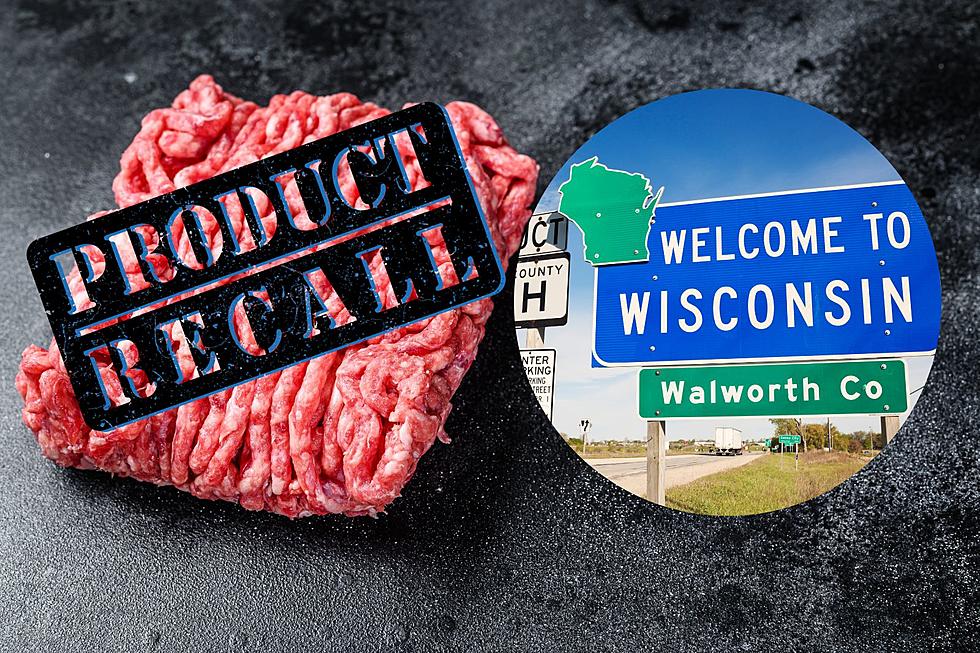
Wisconsin Company Recalls More Than 55,000 lbs Of Ground Beef
Nothing ruins a good grill-out or food in general than bad beef. A Wisconsin-based company is recalling a bunch of beef because it could be contaminated.
Luckily those who had burgers or beef-based dishes this weekend while watching football in Iowa or Illinois didn't get exposed. Ironically, two states that are Wisconsin football's rivals did get the bad beef.
Bad Beef Being Recalled By Wisconsin Company
American Foods Group, LLC, doing business as Green Bay Dressed Beef, LCC, a Green Bay, Wis. establishment, is recalling approximately 58,281 pounds of ground beef products the U.S. Department of Agriculture's Food Safety and Inspection Service (FSIS) announced on Friday.
The raw, ground beef items that were produced on Aug. 14, 2023, may be contaminated with Shiga toxin-producing E. coli (STEC) O103. The products being recalled have the establishment number "EST. 18076" inside the USDA mark of inspection.

Is Wisconsin Creating More Bad Beef With Football Rivals?
The possibly contaminated items were shipped to distributors in Georgia, Michigan, and Ohio.
Even though the Wisconsin Badgers don't play anyone from Michigan this year, they have Ohio State on the schedule on October 28th in Wisconsin. Obviously, the company didn't purposely send the Buckeyes bad beef to try to give the Badgers an advantage. It would be a cool story though.
The problem with the beef was discovered when FSIS was notified that a sample collected by a state public health partner tested positive for the presence of E. coli O103. There have been no confirmed reports of adverse reactions due to consumption of these products.
Many clinical laboratories do not test for non-O157 STEC, such as O103 because it is harder to identify than STEC O157:H7. People can become ill from STECs 2-8 days (average of 3-4 days) after consuming the organism.
What Happens If I Eat The Bad Wisconsin Beef?
Most people infected with STEC O103 develop diarrhea (often bloody) and vomiting. Some illnesses last longer and can be more severe. Infection is usually diagnosed by testing of a stool sample.
Vigorous rehydration and other supportive care are the usual treatments. Antibiotic treatment is generally not recommended. Most people recover within a week, but, rarely, some develop a more severe infection.
Hemolytic uremic syndrome (HUS), a type of kidney failure, is uncommon with STEC O103 infection. HUS can occur in people of any age but is most common in children under 5 years old, older adults, and persons with weakened immune systems. It is marked by easy bruising, pallor and decreased urine output.
Persons who experience these symptoms should seek emergency medical care immediately.
Distributors and other customers who have purchased these products for further processing should not use them or further distribute them. These products should be thrown away or returned to the place of purchase.
LOOK: Most common fast food chains in Iowa
10 Ways To Beat Pollen Allergies
More From B100









